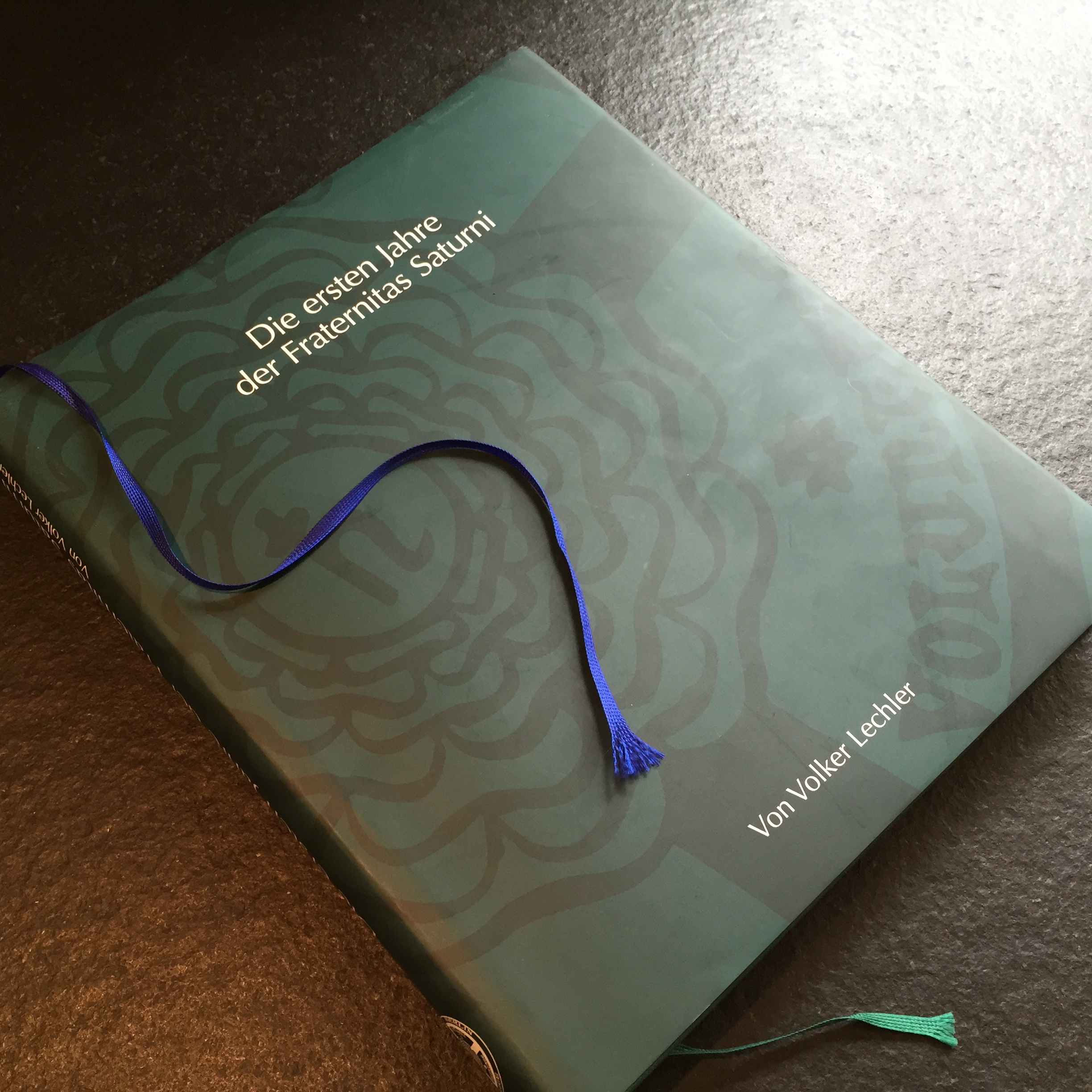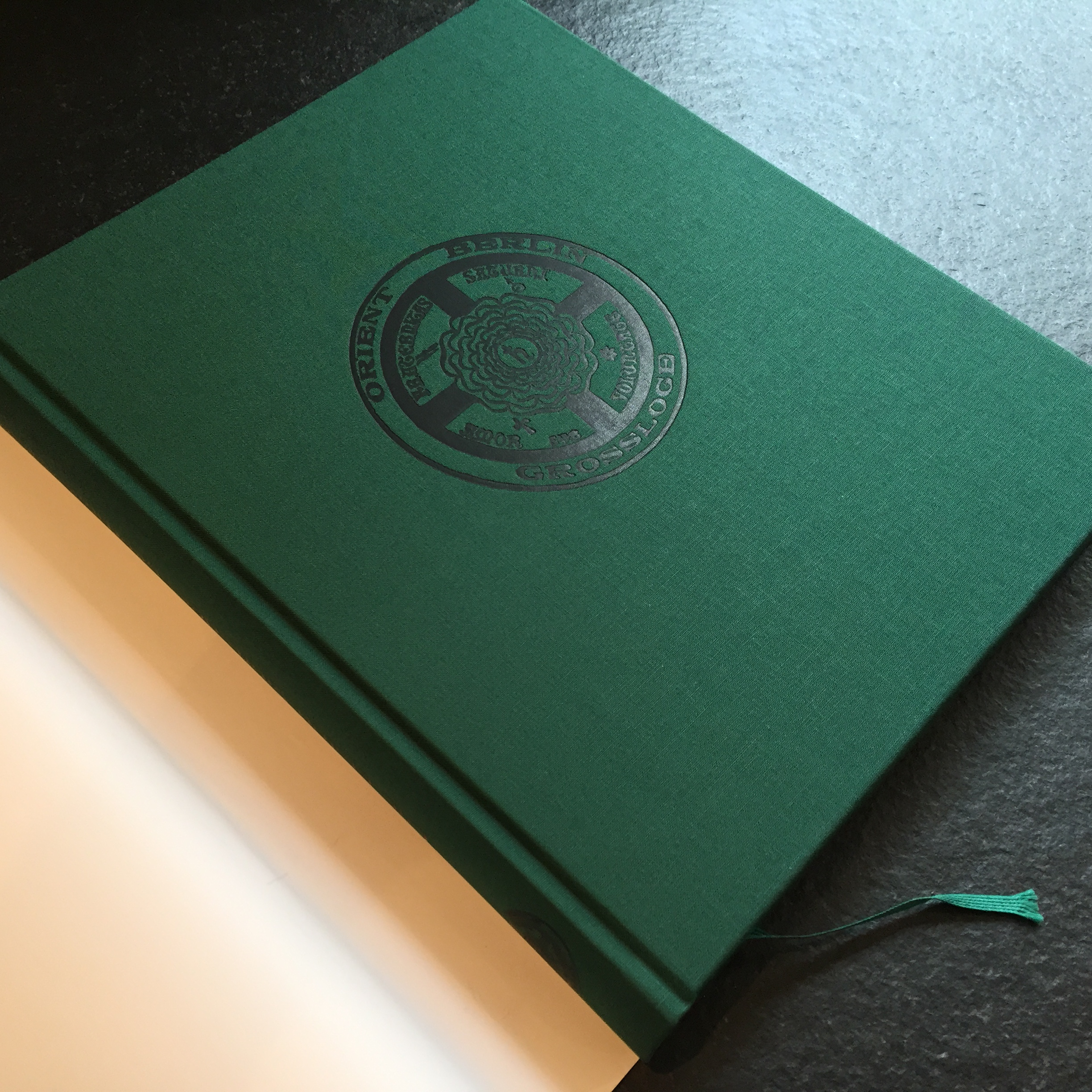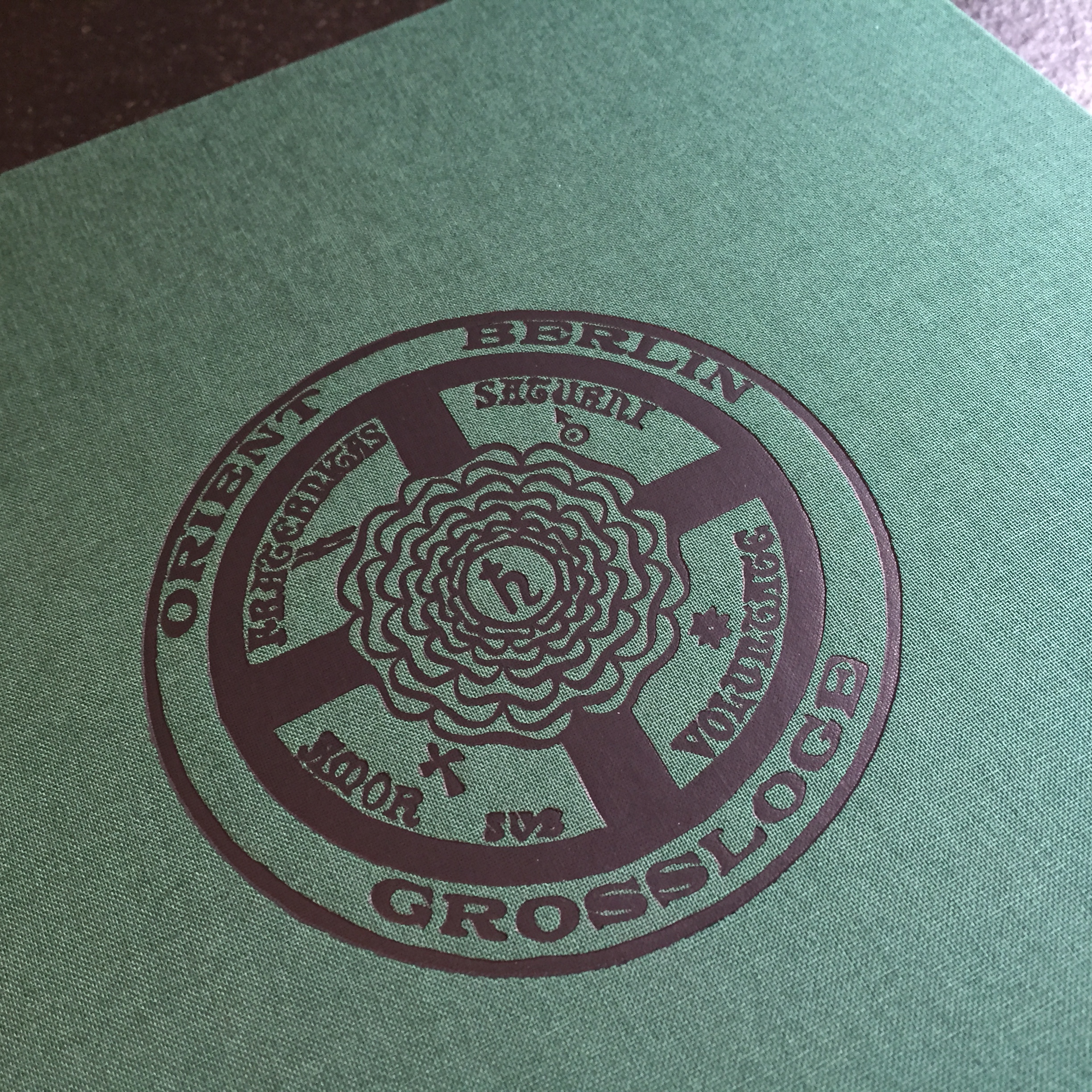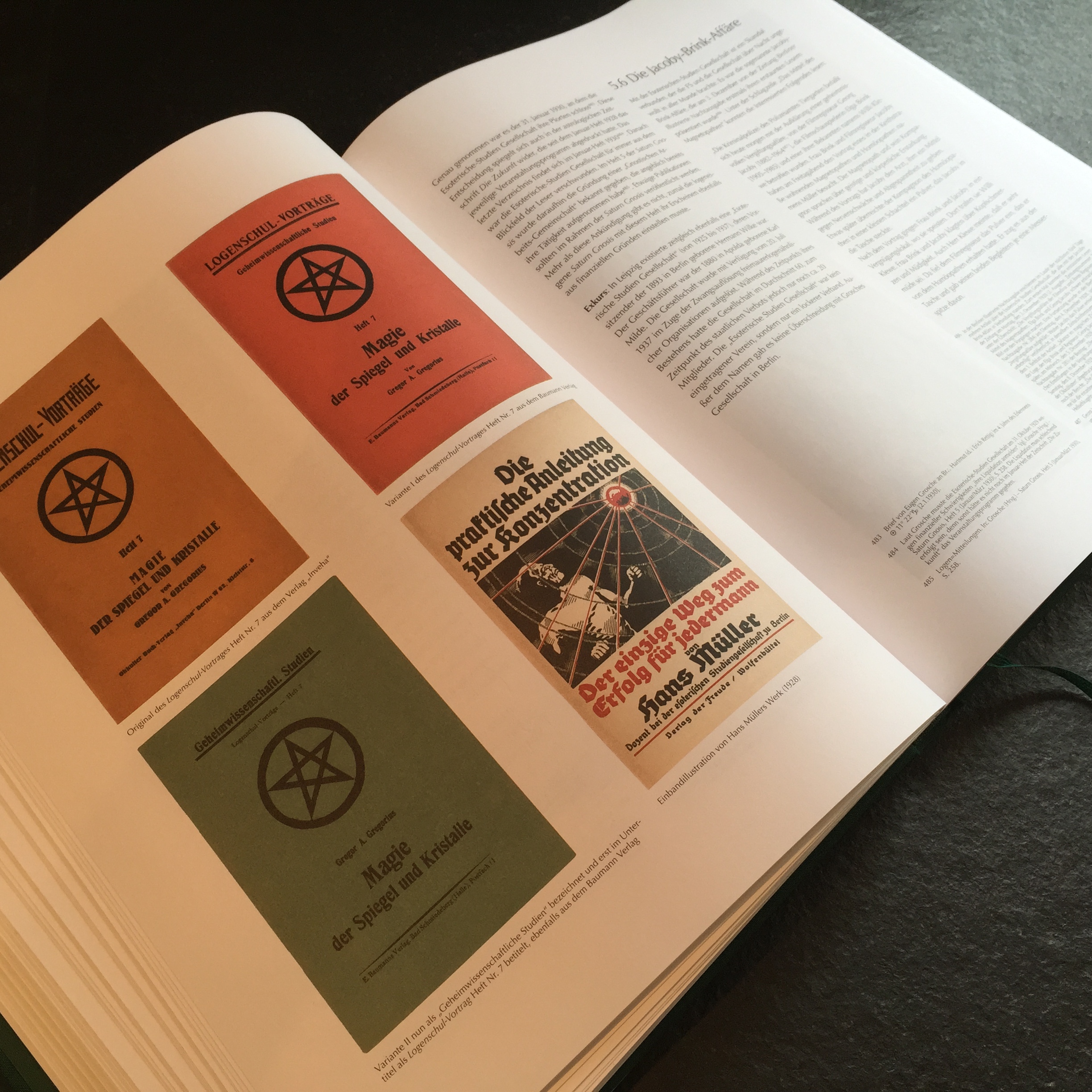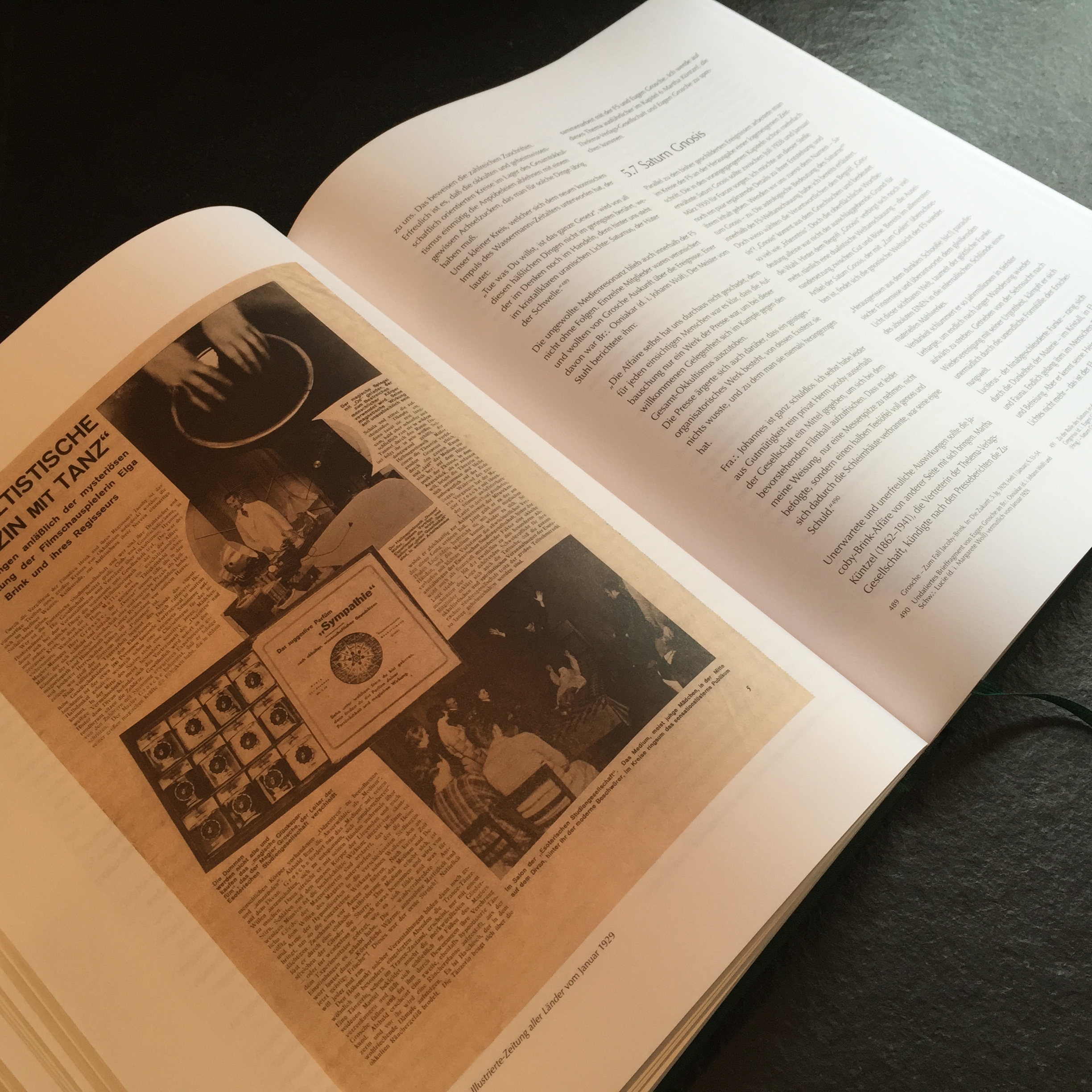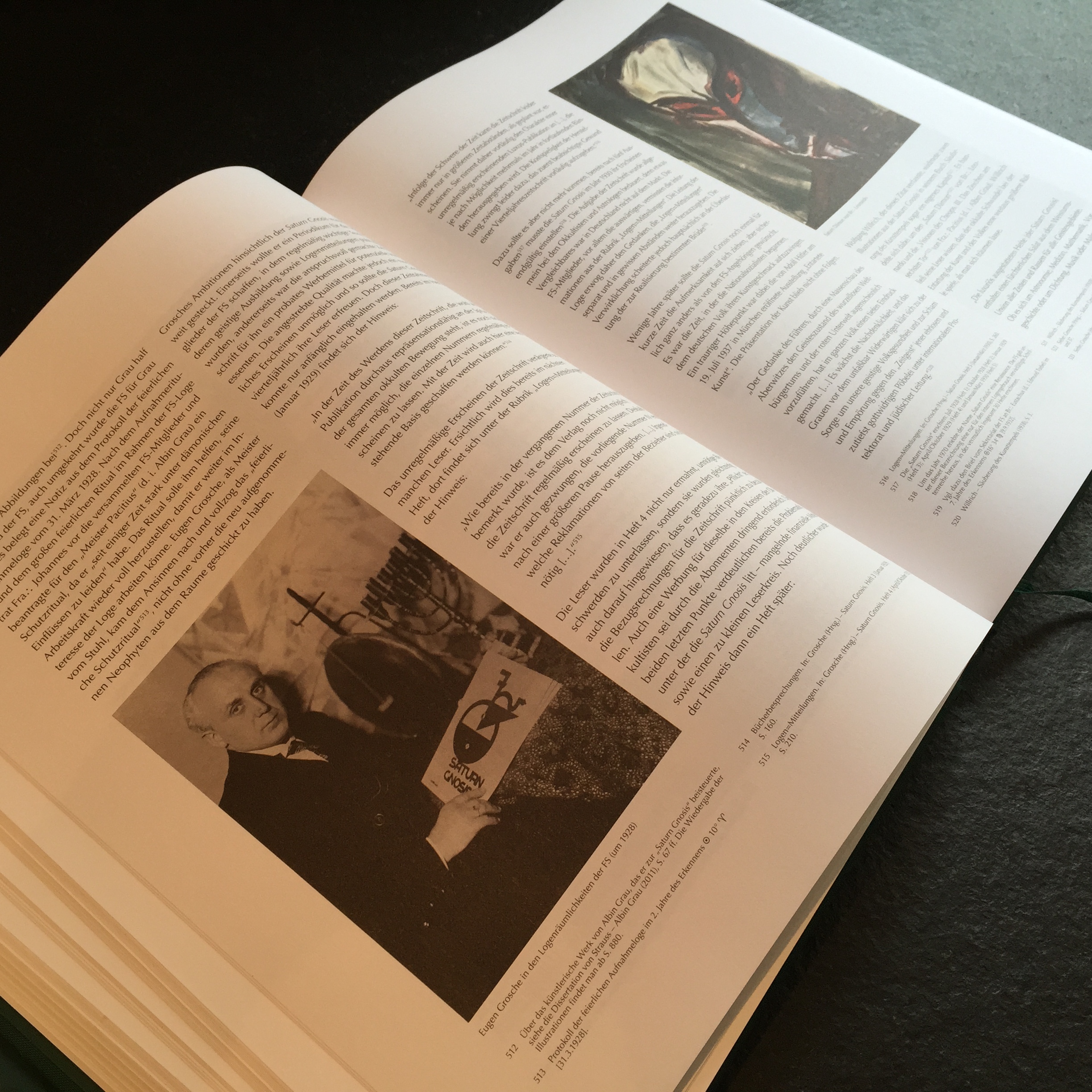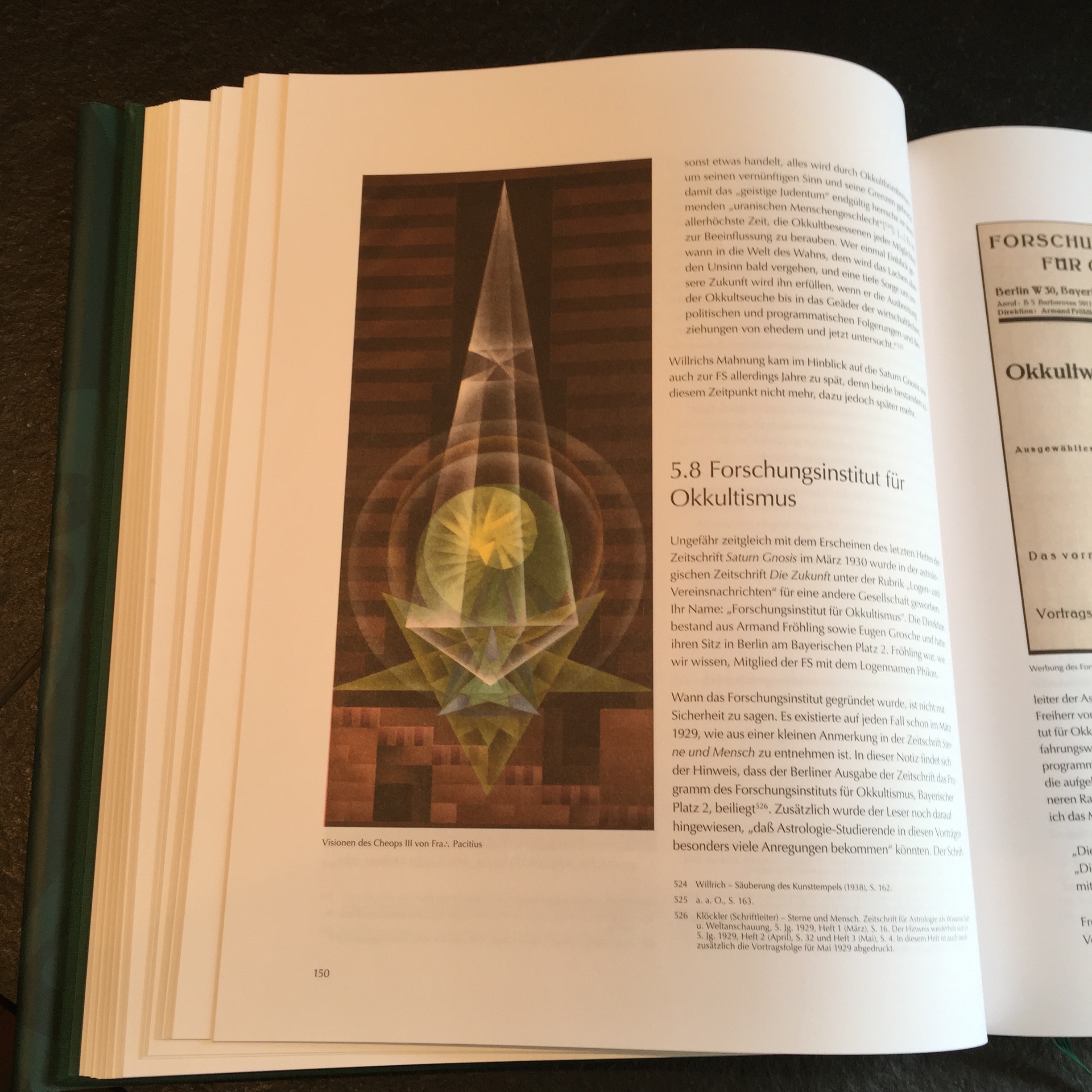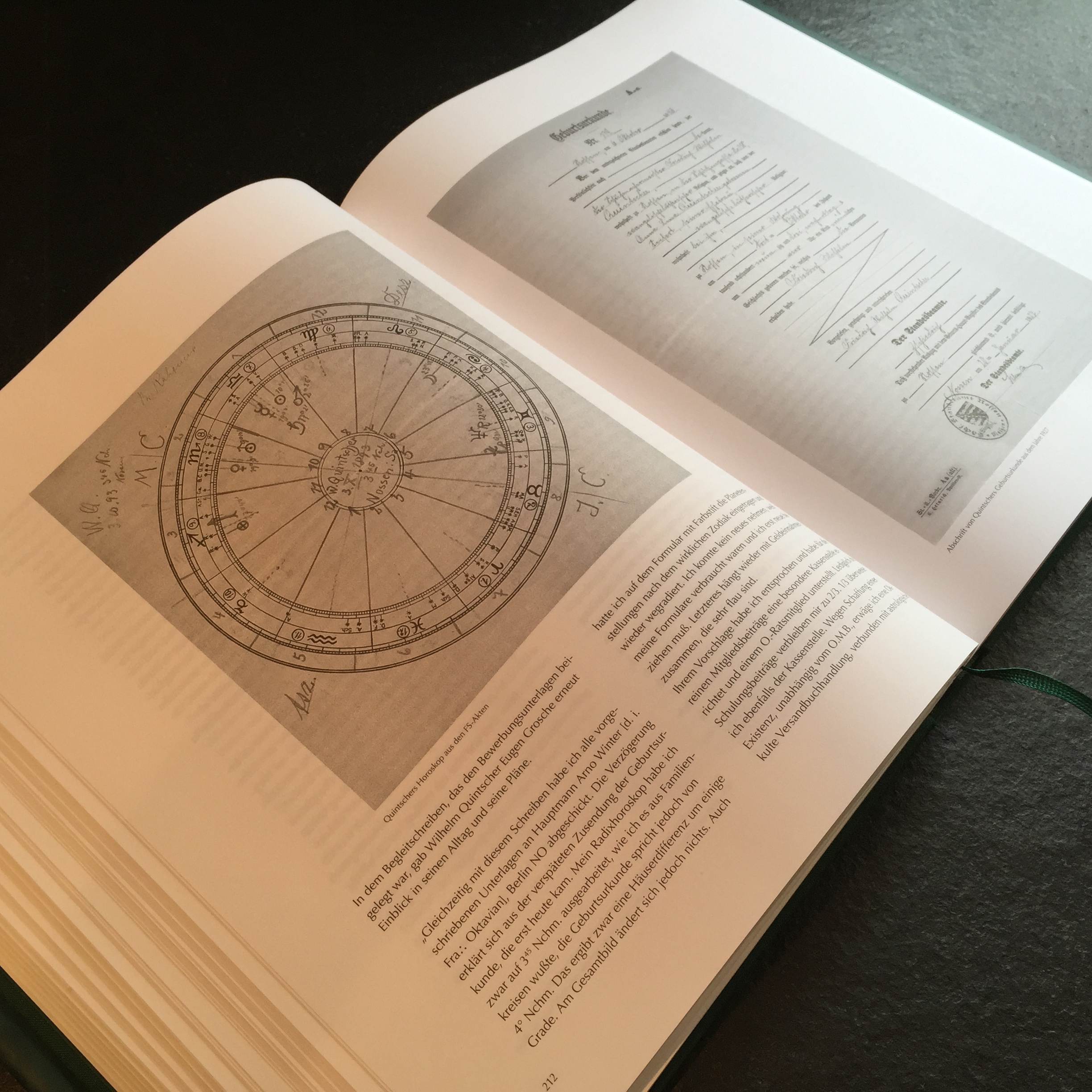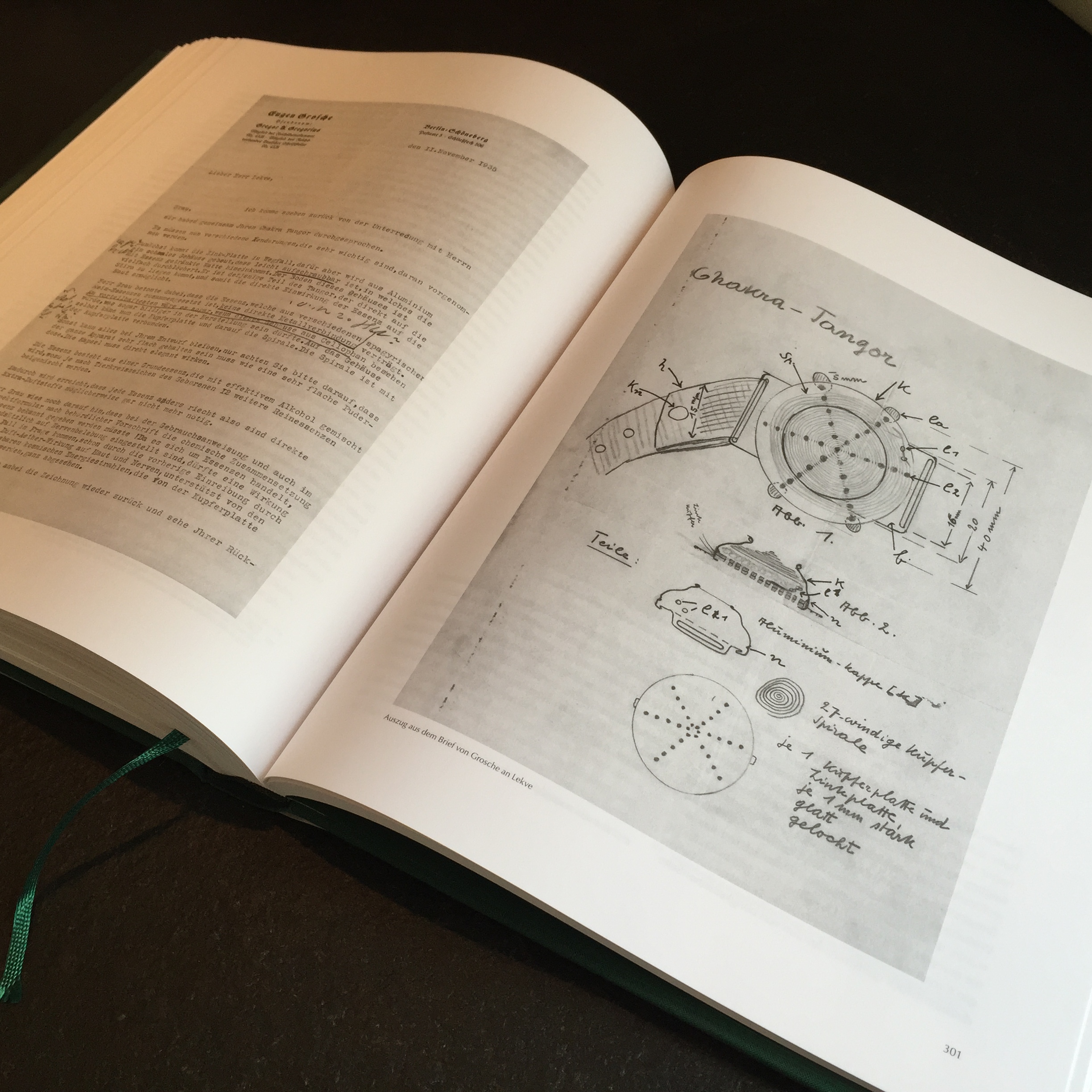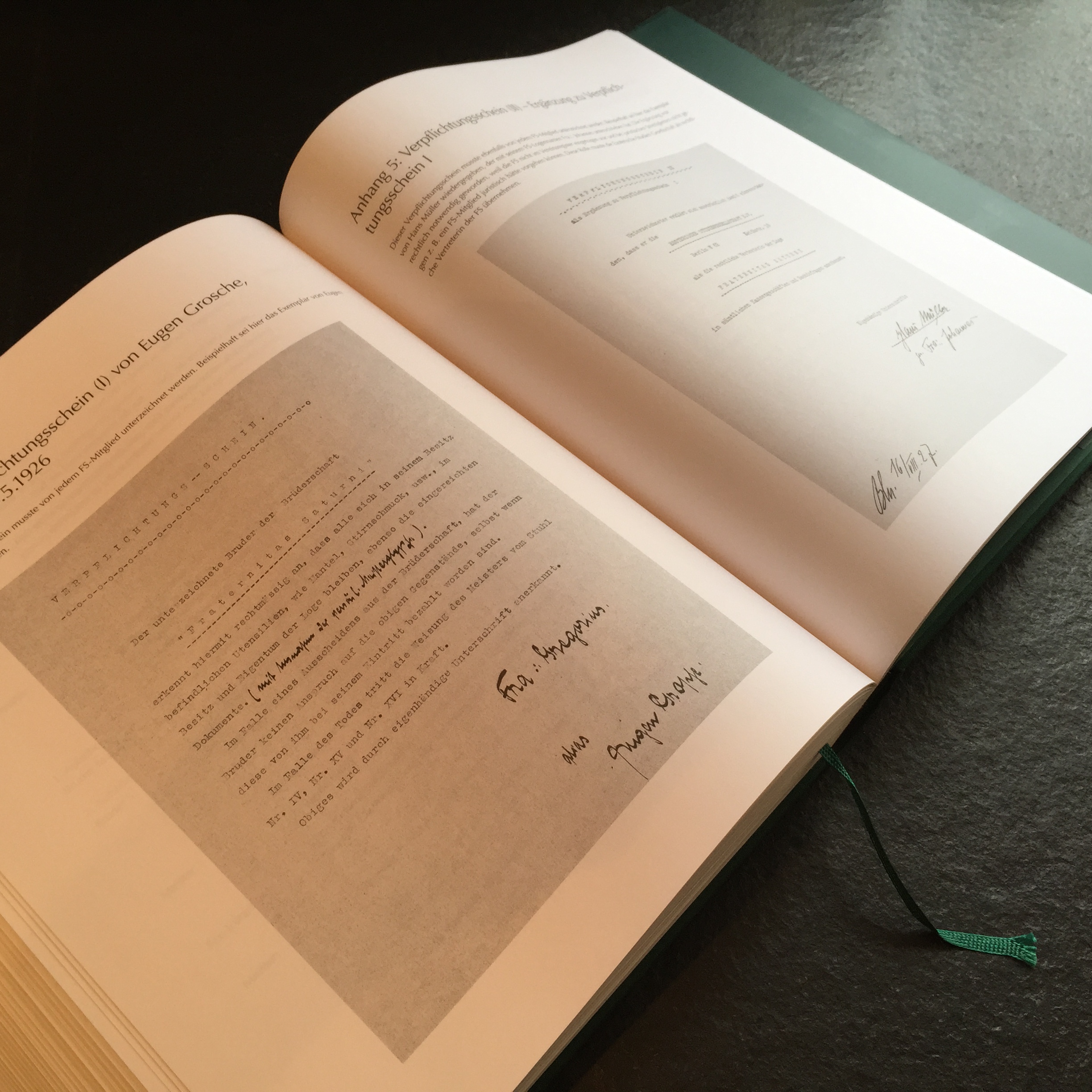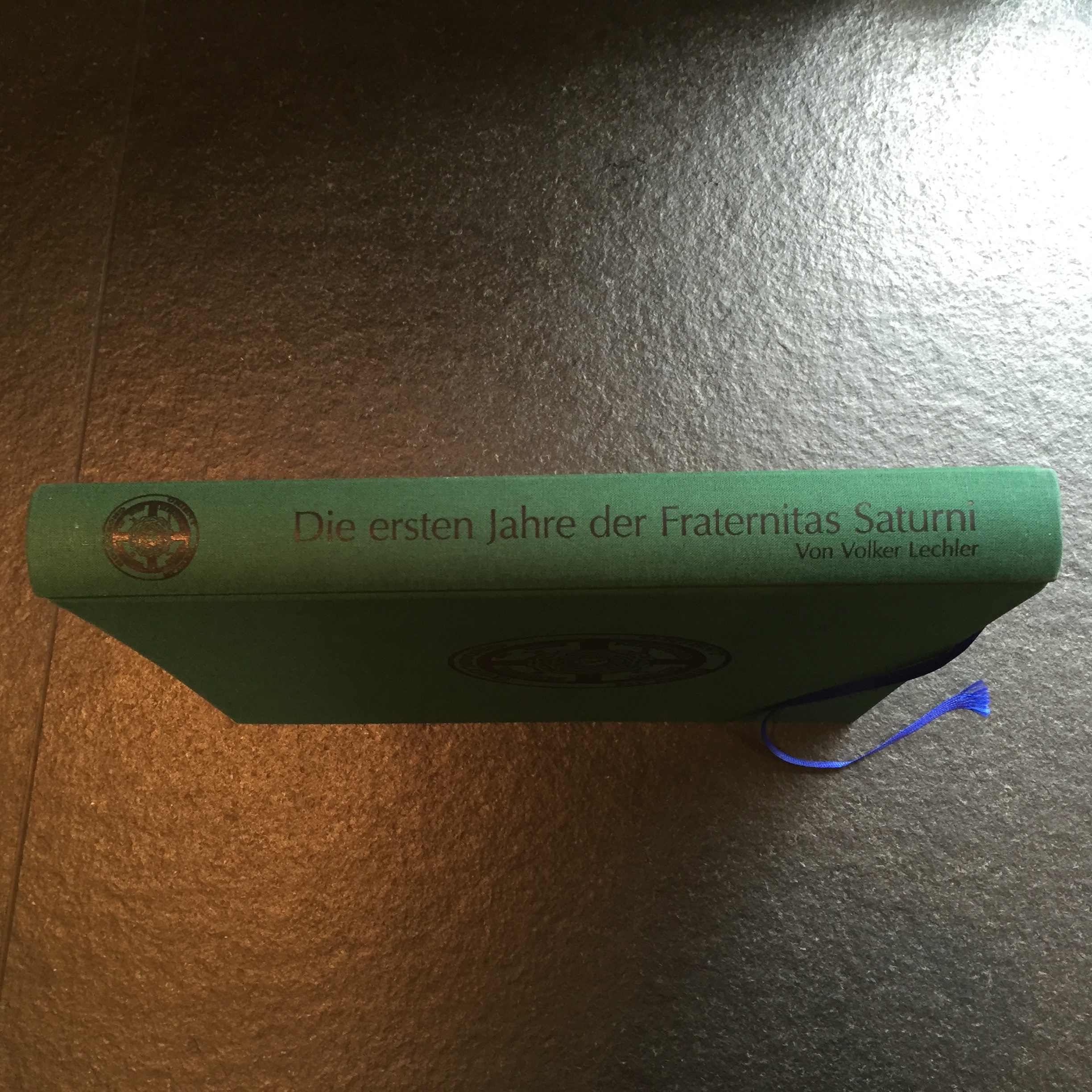Book Review | Part 1: 'The First Years of the Fraternitas Saturni'
Introduction
More than a year ago I had the pleasure to review Volker Lechler’s liminal book on the founder of 20th century occult Pansophy, Heinrich Tränker. In two parts we covered some of the highlights from the newly discovered material published by Mr.Lechler (Part 1 | Part 2).
What emerged was a completely new perspective on the origins of modern German-language occultism in the late 19th century. An origin that to a large extend owed more to the ancient Hermetica as well as 16th century Rosicrucians than to Medieval Grimoires or even the Golden Dawn. Magic as a central aspect of Pansophy was perceived to be a tool to advance one’s mystical enlightenment, not a path into hedonism or turning oneself into god. Unfortunately because of this, Pansophy also lacked all the grandeur and splendour that would have guaranteed it a larger and more long-living public audience - and thus remained a niche development in the German speaking countries at the turn of the 20th century. Still, it provided the fertile soil for other magical groups to rise from. And that is precisely what Mr.Lechler’s newly published 2nd volume in the series invites us to discover:
As you can see from the photos, the effort and craftsmanship that went into the physical creation of this book are just as minute as they were for the first volume: Bound in dark-green linen and stamped with the intricate design of the original lodge seal of the FS, the book speaks to the same level of loving attention to detail that we also find in Mr.Lechler's historic research. The reproduction of the countless original and extremely rare documents - most of them appearing in print for the first time - is flawless and allows to immerse the reader deeply into the time and spirit of the occult scene of the early 20th century.
Now, with the recent publication of this 2nd book in the series, let’s recall two essential learnings we took away from the first volume. Especially for a non German-speaking audience that didn’t had the pleasure to read the first book themselves. These learnings are not only applicable to our tradition of Western Magic in general, but also form a helpful backdrop for the review of the second volume in this young series:
- We learned that all good work dies within the shadow of men who consider themselves more important than what they contribute to. As soon as the ego and the cause begin to blur, all inner contacts tend to withdraw. Ego as such might not kill the inner contacts but it sure bores them to death and makes them lose interest quickly - giving way to parasites and other spiritual and worldly scavengers who happily feed off the unfinished work. Keeping it stuck, open and arduous like a scar unable to heal. If this was partly true for Heinrich Tränker’s life, it became most apparent in the events that today are known as the ‘Weida conference’ and turned into a clash of egos between Tränker and Crowley. I recommend a re-read of these events in case you happened to miss them - especially as due to their importance they form the first and extended chapters of the 2nd volume.
- Secondly, we learned that people who partake in any particular tradition love to look back on their predecessors and past in pride. Even if there is little to be proud of, constructing a past that fills the cracks and gaps in one’s own self-confidence seems to be a topoi, a repeating cultural pattern we humans seem to thrive on. Here we are faced with the flip-side of the saying ‘we are dwarfs standing on the shoulders of giants’. Because accepting that actually everyone was a dwarf - and our ancestors no wiser or powerful than us - is something most traditions cannot. In these cases historic and mythical past are forced to match and overlap - and the battle over orthodoxy begins. This is also what we discover in Tränker’s biography - and his life-long attempt to establish authority over the one singular version of truth, of an unbroken philosophical, mystical chain of adepts reaching far back into our collective past.
If the stories of our ancestors remain broken and unfinished, like so many of our own, we have the tendency to finish them for them. In fact, this is a wonderful service to our ancestors and has been the soil for myths over millennia. Yet, trying to control, confine and ‘purify’ this living lore, into one orthodox truth, into a single version of a story is where danger sleeps. It kills off the living spirit of our tradition, the constant renewal of our lore. Each myth we keep alive, deserves the right to change again with each mind it passes through. We leave a trace on them, just like they leave a trace on us.
Just like the previous release, Mr.Lechler’s new book on 'The First Years of the Fraternitas Saturni' will proof to be of timeless value to future magicians and occult researchers. Without ever being judgemental or subjectively coloured in perspective the book continues to dismantle many of the myths of our tradition, which we allowed to turn cold and into false orthodoxy. The results of Mr.Lechler's painful private studies in archives all across the German speaking countries continue to break open the stone we, i.e. the German speaking tradition of magic believed to firmly rest upon. In doing so, Mr. Lechler’s second book offers a vast amount of new perspective, new interpretations and - hopefully - of new, living stories of magic to come.
A new day.
We are now in 1926. The events of the Weida conference lie behind us, few of us have actually attended but many of us have heard rumours and stories. The ‘word’ that Tränker has fallen is spreading quickly and even Crowley has left the German Reich. The *Pansophic Lodge* as we knew it is history. And right amongst its ashes, on 8th of May we have found our new home, a new occult lodge, the Fraternitas Saturni (FS).
The problem now is - speaking metaphorically - that this new home has a house number, a landlord and an address, but no roof, no windows and no foundations yet. In fact it has a table to sit on, but no food to serve yet.
Upon its founding day in 1926 the FS did not have any of the following:
- a temple
- any written rituals or curriculum
- any structure of titles or degrees
- a consistent worldview, belief or paradigm
- a link to a magical past (lineage)
- more than 5 members
Instead it did have:
- exactly 5 members (Eugen Grosche, Max Staack, Hans Müller, Artur Schumacher, Joachim Winckelmann)
- a lot of financial problems
- a leader with an ego - and a plenty of talent
- a desire for power and turning itself into orthodoxy
How do you make something out of nothing, is a question many alchemists have pondered over. And so did Eugen Grosche and his accomplices during spring 1926. Looking back in return, they were remarkably successful. Due to the hard and innovative inner and outer work, due to the uncompromising will a few men were able to turn into matter; and of course due to cheating where necessary like any good alchemist would have done.
As we discovered in an earlier essay, the concept of ‘cheating’ is an interesting and relatively young one in the magical tradition. If a tradition forms a chain, each link can claim genuine possession of the entire knowledge that is handed down through this chain - irrespective of who was its original creator. Each link can equally add new knowledge, as long as it remains relatively consistent with the foundational premises of the tradition. Thus knowledge begins to form a river fed by many branches. Questions over the source, or which branch added which waters, become incredibly difficult to answer. Or maybe even irrelevant? Now, such concept in itself wouldn’t pose a problem - if magical lodges in particular didn’t like to claim sovereignty over certain ‘secret’ aspects of a tradition.
With this in mind, let's take a closer look at the the origins of the Fraternitas Saturni, the influences that shaped its early theories and practices as well as the actual work it became known for early on in its existence.
The Origins.
To get us started, let’s take a brief look at the process through which the FS came to being. Looking at its predecessor lodges and groups will give us a lot of clues about where much of its original body of thought stemmed from. Take a look at the image below or download as PDF here.
I am sure if we had the opportunity to interview any of the original members of the FS each of them would have strongly disagreed with such abbreviated and possibly misleading overview. Reality always is much more complex. However, by zooming out and looking at key milestones only that led to the foundation of this storied lodge, we can see a few things with surprising clarity:
- In theory Eugen Grosche (aka Gregor A. Gregorius) didn’t need to be initiated into any lodge himself in order to harvest sufficient material to create a new one. He was trained as bookseller and from young years onwards held a strong interest in the occult, even helping out in Heinrich Tränker’s specialised second-hand bookshop in Leipzig. From the turn of the 20th century newly emerging and highly dedicated publishing programs to the occult such as the famous ‘Geheime Wissenschaften’ series of the Hermann Barsdorf Verlag produced almost encyclopaedic new editions of critical works of the Western Mystery tradition for the German reader.
- Even before the official formation of the FS an operating principle that Grosche would uphold for decades to come was in place: an outer study group was put in place to attract possible new members and functioned as a vestibule to the actual inner lodge. These study groups or ‘societies’ - under their various names to come - would specialise on offering open lectures and dedicated seminars to all people interested, in particular on astrology. However, these groups were not only meant to create a beacon for all people interested in the occult to see, but especially to bring in the necessary funds to make a living for their teachers.
- Precisely to the last point above, we learn that from a financial point of view each attempt Grosche and his companions took to establish a source of income for themselves through the occult arts resulted in defeat. Some did so quicker, others lasted a little longer, yet none seemed to return more than they had originally invested. Despite the recurring setbacks they experienced they didn’t seem to give up or learn much from it? This is even more surprising when we see that Grosche himself gave advise to his disciplines to always remain financially independent from any occult group they might be running.
“Think it all over well, allow things to settle and clear; first you should create a civic existence for yourself in order to be financially independent of the order (- which was just a study group, note Fra.Acher). That is, as I told you before, the largest cancer-harm within your structure, and you will see that from the ruins enough bricks will remain in order to erect a new structure.” (a letter by Eugen Grosche to Wilhelm Quintscher, 1927)
- Despite the fact that the active people involved in each of the precursor organisations of the FS were hardly more than a dozen, all of the latter were abandoned because of inner conflict amongst their leaders as a key factor. One could assume that we are already dealing with such a niche subject here, that people should value the benefit of an active community of like-minded fellow students above anything else (especially during the times before the dawn of the internet). Yet, this doesn’t seem to be the case. Instead conflict of power, direction and structure seems to always turn out to be the dominant topic in the end. A characteristic that of course isn’t particular to this group of German magicians - one only needs to compare it to the history and downfall of the Golden Dawn.
The Influences.
From the above we can now paint a clearer picture of the main influences on the early FS. Grosche and its founders of course didn’t operate in a void - or ‘created something out of nothing’ - but leveraged a lot of the available occult material of their days. In their approach they would prove to be as syncretic as Crowley had been in his own works - harvesting both ancient and traditional material as well as theories and practices only just emerging in the 1920s. Following Mr. Lechler’s precise analysis of events and relationships of protagonists, here is an abbreviated overview of strong influences on the early teachings of the FS:
Now, the challenge left to Eugen Grosche as the ‘Master of the Chair’ in particular, was to create a coherent whole from this primordial soup of occult influences. After all precisely the lack of such a coherent structure - in philosophic thought and magical practice - had let to the downfall of the previous Pansophic lodge and continued to be the main point of criticism on Heinrich Tränker. Clearly Grosche had learned from the mistakes of his master. Yet the question remained: How do you tackle such a beast of a task - while at the same time running a bookshop and publishing house, managing a difficult marriage, giving occult lectures almost every other night, constantly recruiting new neophytes, leading the ceremony during the recurring meetings of the young lodge as well as answering the letters of its correspondence course members? Grosche clearly was a very busy man with very little financial means - and so the practical help of a 19 year old student came in extremely handy.
“Only gradually was the new new entity - Fraternitas Saturni - brought to life and content created for it; nothing was closed and everything was in the stage of becoming. Let’s take the grade system of the lodge as an example. Initially it didn’t exist at all and Grosche didn’t hold a clear idea on how it should look like. He consulted on this matter with the just 19-year old Br… Athanor (i.e. Henrik Hunwald), who had agreed to write rituals for the higher degrees leveraging works in French.” (Lechler, p.93)
The following chapters in Lechler’s book offer the most fascinating view on how the young lodge quickly evolved from a fluid and organic stage of becoming - full of possibilities - into a rigidly managed entity, deliberately mimicking the dusted grade system, hierarchy, terminology and even heavy-handed liturgy of an old fashioned Freemason lodge. Despite Grosche’s own communist past, few of the opportunities to create something new, different and innovative were actively leveraged. Instead the mimicking of the past and the compliance with traditional structures and approaches seemed the only way to gain broader acceptance and the stage of orthodoxy in this niche tradition ultimately. Thus the man-made aspects gained the upper hand quickly in the FS - and with it the flaws that naturally come with it.
The Work.
After so much reflection on travail and shortcomings, let’s take a look at a few aspects of the early FS years that in my eyes remain pretty impressive even today. In particular this is the unflinching commitment of its key members - and especially Eugen Grosche - to not compromise their magical agenda or purity of action. In terms going out into the public and yet aiming to 'keep things real' the early FS certainly achieved a lot.
Here is just one striking example: After many failed attempts of creating sufficient income through various occult study groups, Grosche founded the ‘Esoteric Study Society’ (Esoterische Studiengesellschaft) in 1926. Now, let’s take a look at their program of public evening talks in their early days. Remember, this is during a time when Germany had lost the First World War only eight years ago, the economy had faltered and financial prospects to make a living of anything that wasn’t essential to people’s lives were rather dark... Here are a few topics that Grosche and his peers chose to ‘introduce’ the Berlin public to the colourful world of Esoteric:
- Mirror-magic and Demonology
- Astro-magical Diagnosis
- Transits - their Meaning and Evaluation
- Introduction to cosmic Magic
- Training of Willpower as the Foundation to Esoteric Development
- Hatha Yoga - Indian Teaching of the Breath
- Advanced Astrology
- Advanced Course in Magic
- The Astral Plane and its Meaning in Magic
- The Devachan Plane and its Meaning in Symbolism
- Personal Hygiene and Nutrition as Foundations of Mental Development
- Tattwas and Planetary Hours as Foundations of Practical Magic
- etc.
Now, this is just a short selection from the full range of topics they brought to the public. In fact for months they offered a lecture every single night. The commercialisation of magic has come a long way since the early days of the FS. While Grosche and his companions certainly probed their chances to make a living off their occult knowledge and skills, they also tried to keep it real as much as they could. Certainly for a German-speaking audience, many of the topics above would have never before been dealt with in public.
Such attitude to not dilute the actual theory and practice of magic also shows true in Grosche’s later print advertisings. Just take a look at what he had on offer in the late 1920s. Where else do you come across an actual magical advertising - including literature references?
Today’s occult marketplace is full of low-quality black ‘obsidian’ mirrors - most of which are coloured glass. And none of them would have been produced, charged and painted with personal glyphs by a practicing adept such as Grosche. Why? Well, first and foremost because we have had another 90 years to learn that nobody earns a living by selling magic that isn’t compromised. Going through Grosche’s biographical milestones as part of the foundation of the FS reads like a primer on precisely this topic: the attempt to give authentic Western magical practice a not so secret place amongst the common people. And if for nothing else, that’s what we owe Grosche for. And we owe Volker Lechler in no insignificant ways - for bringing this story in all its detail, splendour and stumbles to the light of day 90 years after it had been almost forgotten.
Finally, at least one other aspect of the early FS needs mentioning with regards to their commitment to quality. These are the ‘Magical Letters’ (Magische Briefe) - a series of originally ten separate publications that caused quite a sensation in occult circles. Originally planned as part of much larger series, these ten volumes compared to nothing that had been published on Western Magic before - not only in German speaking countries, but across Europe. The closest thing in terms of revealing arcane magical practices to the common reader, in my eyes, were the writings of Pascal Beverly Randolph in the 19th century. Even compared to the publication of the Golden Dawn material by Israel Regardie much later, these publications stand out in terms of clarity of language, precision of instructions and the overall ‘German-engineering’ approach they applied on the subject of human spiritual development.
Below is an overview of the ten titles, years of release as well as their original authors as published in Volker Lechler’s book for the first time:
Now, as Mr.Lechler points out (p.111), this infamous series was sparked and begun before (!) the advent of the FS. Thus they cannot necessarily be taken as evidence for the type of magical practices performed as part of the FS. However, they were written by later members of the lodge and would come to form an essential pillar in their future curriculum. Additionally, they created a halo-effect for the FS that would continue to draw many people interested in magic to it. Including the young Franz Bardon whose most famous own works ultimately would come to display a very similar style and approach to Western Magic.
In the 2nd part of the book review we will take a close look at Eugen Grosche’s role as the head of the FS and its dominant magical teacher. In doing so, we will also be offered the exclusive opportunity to learn more about the most enigmatic personality in German magic, Wilhelm 'Rah Omir' Quintscher.
Meanwhile, for anybody who can read German you might not want to wait that long. Instead I recommend to order your copy of Mr.Lechler's limited edition for as long as it's not yet out of print. Because any magician's historic perspective of our more recent tradition is missing a critical cornerstone without having carefully read and digested all the new material presented in Mr.Lechler's most recent book. It's the passion and unflinching precision of private, unpaid researchers like him, that allow our tradition to re-create itself amongst the gems and ruins of our past.

